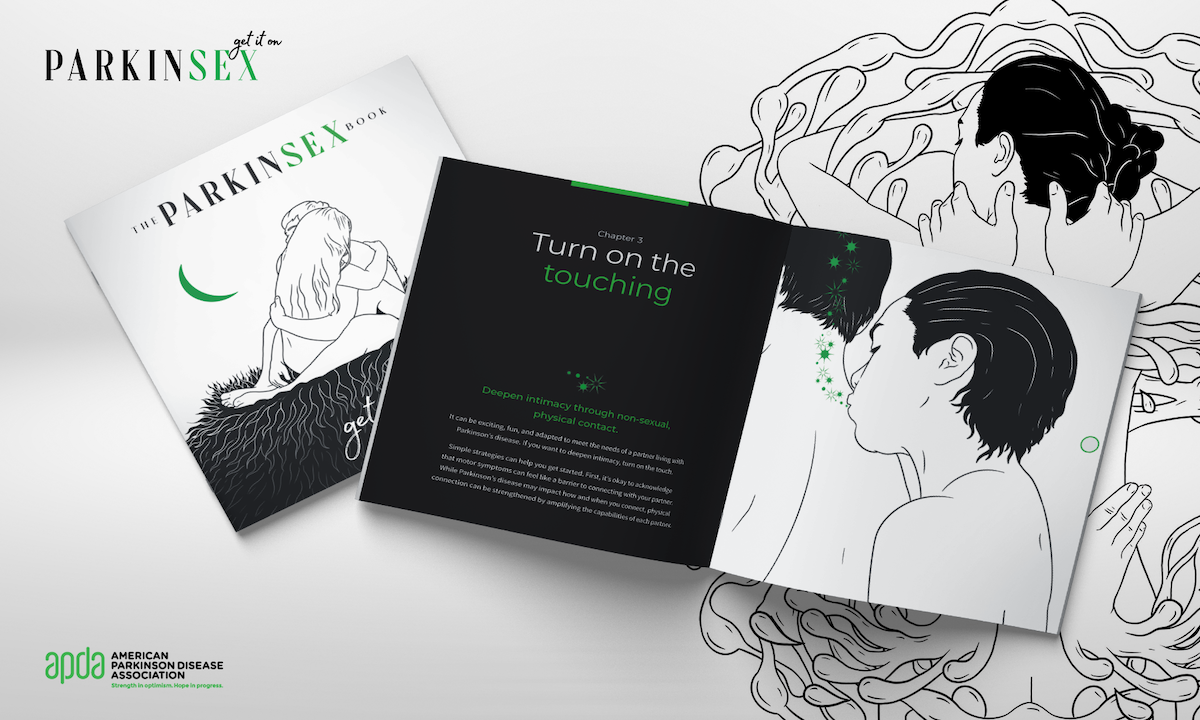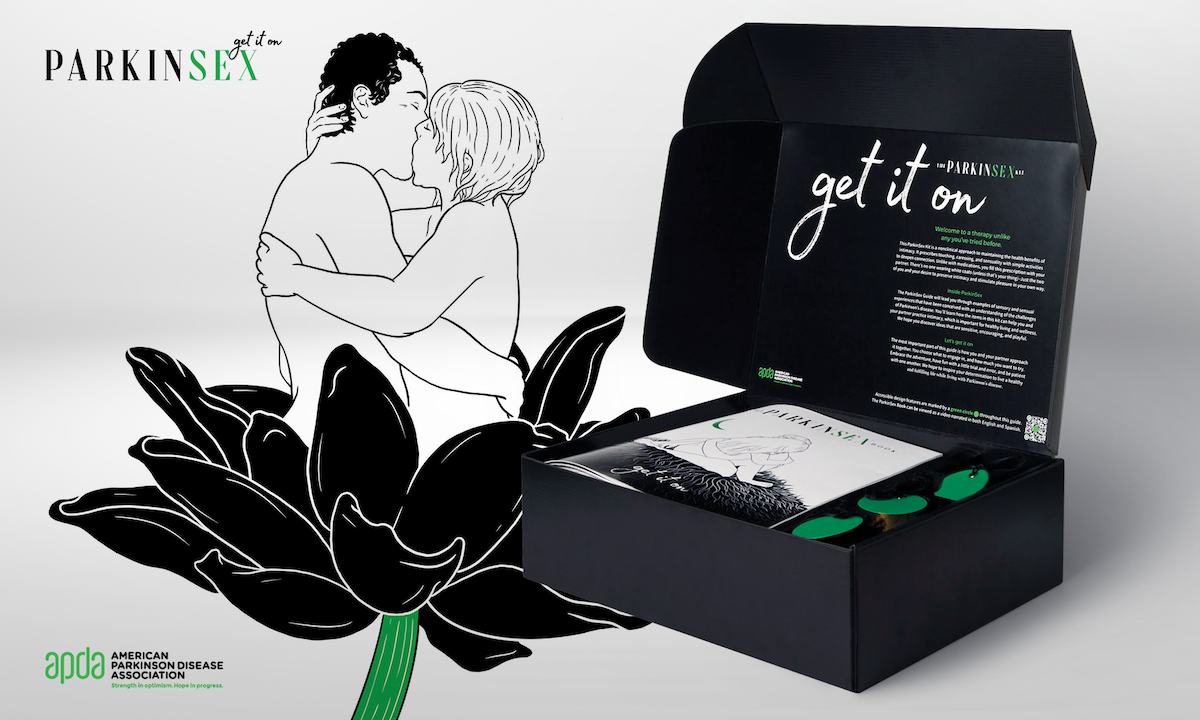
A new resource has been launched to help Parkinson’s patients reclaim the intimacy in their relationships and tackle the taboo surrounding sex and PD. NR Times talks to Dr Rebecca Gilbert, chief scientific officer of the American Parkinson Disease Association, to find out more.
Parkinson’s disease affects more than ten million people worldwide and the prevalence of sexual dysfunction is disproportionately high in patients.
Eighty three per cent of women and 79 per cent of men with Parkinson’s Disease report difficulty with sex and intimacy, often causing partners to grow apart physically and emotionally.
Symptoms like tremor, rigidity and fatigue only reinforce this growing distance.
In an effort to help Parkinson’s patients reconnect with their partners, the American Parkinson Disease Association (APDA) has partnered with Havas Health Plus to launch ParkinSex, a kit designed to help reintroduce intimacy and deepen connections for those affected by Parkinson’s.
APDA and Havas Health sold out of their first batch of kits in just 24 hours with minimal marketing, highlighting the prevalence of intimacy issues among patients.
Difficulties with movement, apathy and a decrease in emotionality of the face are just a few of the symptoms that can create barriers between partners.
Among men with Parkinson’s disease, erectile dysfunction is the most common sexual problem which means some patients are physically unable to perform the sexual acts they used to.
Speaking to NR Times, the APDA’s chief scientific officer Dr Rebecca Gilbert (pictured above) said: “There really are infinite ways that a physical relationship can be impacted by chronic illness in general and Parkinson’s specifically.
“This is something that people expect and that has really been the status quo. People have expected the fact that things have changed, it’s not going to be the way it was and [they] may not be able to have a physical relationship anymore.
“The ParkinSex initiative is about saying ‘you know what, that isn’t necessarily the case.”

As part of the partnership, Havas Health Plus sponsored the pilot distribution of kits to members of the Parkinson’s community to raise awareness about the benefits that sexual intimacy can have for people living with the disease.
According to Dr Gilbert, the response has been “overwhelming”.
“Clearly, there was an incredible thirst and need that we’ve tapped into, which was very encouraging,” she said.
“We’ve included a survey in the kits so that people can give us feedback and help us really understand what spoke to people and what did not speak to people so we can gauge where we have done well and where we might be able to improve.”
Each kit includes an educational guide designed to help strengthen relationships between partners navigating Parkinson’s disease and deepen intimacy with items meant to boost the book’s benefits – including massage stones and candles.
Due to the taboo surrounding sex and as other issues often take priority when speaking to a doctor, difficulties with sex and inimacy often go unaddressed.
“Discussing sexual health with patients often takes a back seat when dealing with other medical concerns that can accompany Parkinson’s disease. That does not mean that sexual health isn’t vital to a person’s wellbeing,” said Dr Gilbert said.
“When prompted, regardless of reluctance, many people with PD admit that they miss the intimate connection they used to have with their partner or explain how their PD has put a damper on their sex life.”
One couple from the US, Steven and Alison, are both diagnosed with Parkinson’s Disease and have experienced first-hand the impact of the disease on intimacy.
They are one of the many couples that have used the ParkinSex kit to help ensure that intimacy remains a strong factor in their relationship.

“Parkinson’s takes away your ability to control your movements, and in many cases your dignity if you’re not careful,” the couple told NR Times.
“As with any relationship, communication is key and that’s what Parkinsex provides. It gives you ideas and suggestions to really bond and create intimacy with your spouse.
“It allows you to be intimate regardless of the physical act of sex. In some cases, that may not even be a possibility due to age, range of movement and symptoms.
“The fact that is tailored to the Parkinson’s community helps to break down barriers you may have in your mind of what you can’t do.”
Following the success of its initial launch, ParkinSex is now working on scaling up the product to meet the growing demand.
There is currently a waiting list for the kit but the booklet is available for download on the APDA website.
“We’re working on getting processes in place to get the kits into the hands of as many people as we can working with partners beyond Havas Health.
“[They] got us started and they really put their heart and soul into it and now we need to make sure that we’re independently taking things from here, so we’re working on getting fulfilment centres in place to be able to take care of that.”

The ParkinSex kit is part of a wider push from the APDA to get people talking about sex and Parkinson’s Disease.
The organisation will be running a Q&A session with an ageing and sexuality expert before launching various other initiatives and information kits to support the ParkinSex kit.
Dr Gilbert added: “It may not be that you’re going to have the same exact relationship as you used to and that’s okay; that’s an evolution in how a couple of lives.
“But we can try to mitigate whatever barriers that are there and try to establish the fact that maybe there’s something new that can be discovered that helps a relationship continue.”









